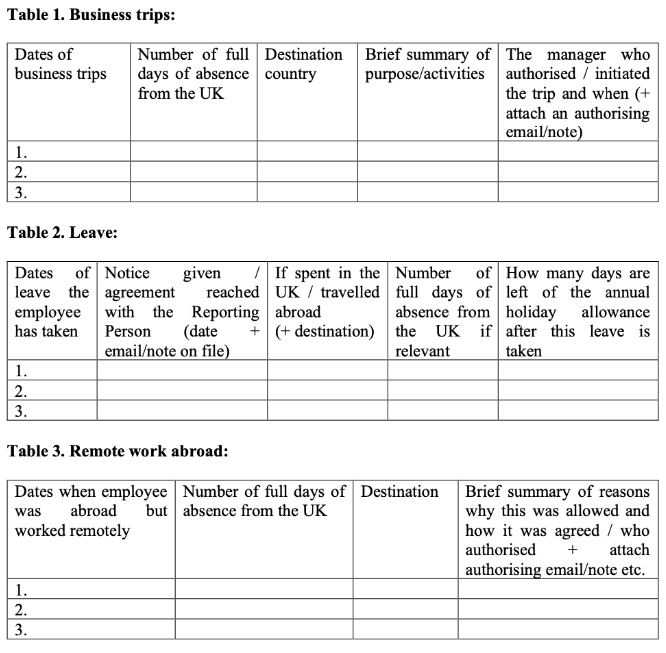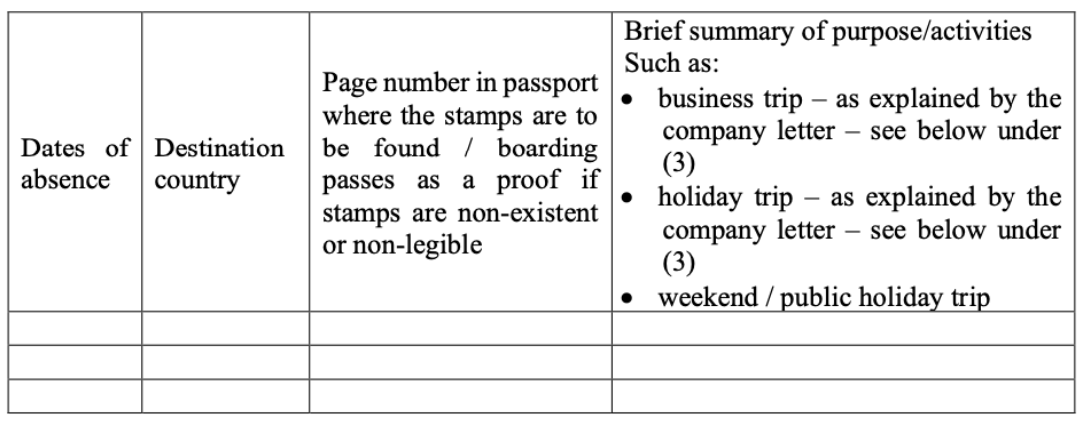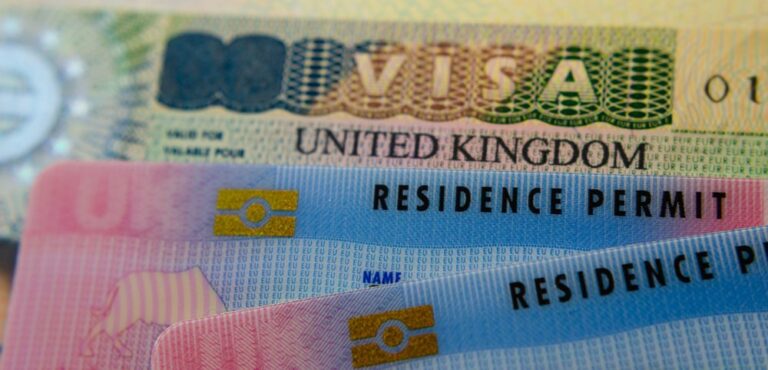Letter of advice for employers with Sponsor Licence

We have produced a letter with responses to your questions regarding the absences and remote work requirements for a UK Skilled Worker visa holder, with a view of obtaining an Indefinite Leave to Remain (ILR).
General company advice on remote working for skilled worker’s visa. Under the immigration rules for skilled workers is it allowed nationally and internationally?
The Immigration Rules directly determine requirements re absences from the UK while holding the Skilled Worker visa. However, they do not expressly prohibit remote work. Neither do they provide definite guidelines on how many hours/days per week/month/year the employee can work remotely. This issue is left for individual consideration of the caseworker who will be assessing the Skilled Worker extension or ILR application.
In order to give you understanding of the current Home Office approach to these issues, we will provide a comprehensive analysis of the following issues:
- Absences from the UK for business trips and holidays
- Remote work from abroad
- Remote work from within the UK
1. First, please see below the current absences’ requirements relevant to both business trips and holidays:
The requirements for ILR are: no more than 180 days’ absences are allowed in a consecutive 12-month period. Only whole days are included into this calculation.
Please also note that absences from the UK during period of leave granted on or after 11 January 2018 are considered on a rolling basis. If the applicant’s qualifying period includes leave granted before 11 January 2018, any absences during that leave are considered in consecutive 12-month periods ending on the date of application.
The Home Office guidance “Indefinite leave to remain: calculating continuous period in UK” states that the absences must be consistent with, or connected to, the applicant’s sponsored employment in the UK as basis of their stay in the country. This means that any working trip, paid leave and weekend absences are count towards the overall 180 days limit.
Permitted reasons for excessive absences are very limited and include serious illnesses of the applicant or a close relative, conflicts or natural disasters.
As a general guideline, the caseworkers are advised that “time spent away from the UK for extended periods, particularly if the business no longer exists, should not be allowed”. There is no guidance regarding how much “extended” is, it is for the caseworker to decide on a case- by-case basis.
However please note that going on a working trip and staying abroad for longer than necessary to perform the work duties in question is not viewed favourably. In other words, an employee can not leave the UK using the working trip as an excuse and then travel for extensive periods of time “on a frolic of their own” without having taken a leave.
2. Remote work from abroad:
From our experience, remote work from overseas is not considered acceptable by the Home Office as a general rule. The Home Office often sees remote work from overseas as a red flag showing the employee did not need to be in the UK for the purposes of his employment and therefore did not need the Skilled Worker visa in the first place. Working from abroad is only viewed favourably if the employee is on the officially recorded working trip. We therefore advise to avoid remote work from overseas whenever possible.
When remote work from overseas is unavoidable, it should be kept to a minimum and accurately recorded, for example in the format of a table suggested below. We also advise to explain the reasons for each episode of remote work abroad and attach evidence of intra- company authorisation for it.
3. Remote work from within the UK:
Remote work from home while being in the UK is generally allowed to Skilled Workers, if the working contract has a provision permitting it and clearly outlines the working pattern (meaning arrangements re how the contractual hours are split across the working week and what business premises’ and other locations’ attendance is required on particular days of week).
Please also be aware that the “Workers and Temporary Workers: guidance for sponsors” of March 2023 requires an employer to notify the Home Office when the working pattern originally stated in the employment contract changes: including when “the worker is, or will be, working remotely from home on a permanent or full-time basis (with little or no requirement to physically attend a workplace)” or “the worker has moved, or will be moving, to a hybrid working pattern”.
This requirement is only applicable to the permanent working pattern, not remote work undertaken on a case-by-case basis. The occasional remote work does not need to be reported, it can just be recorded by the employer company internally (see more details below).
It is not advisable for the Skilled Worker visa holder to start working remotely for the majority of working week/month/year, as such arrangement would undermine the purpose for which this visa is issued.
More specific case advice as we have two sponsored workers working internationally over the summer period. One of them will be required to work abroad at further dates. If possible, can we please have the wording examples that we as a company can utilize for our records explaining their absence from the country and their work that is in connection to the job titles that they have been sponsored for
(1) Tables and lists to keep
There are no requirements to the formatting of absences records kept by the company internally but we may suggest to keep consecutive tables of absences. Please see the examples below. You may expand these records as you wish.

We advise the remote work abroad option should either not be used or kept to a minimum whenever possible. It would be advisable to also file emails/notes from the management clearly authorising this remote work arrangement and its dates.
(2) Analysis of the employment contract extract provided
The employment contract extract you have provided does not contain the definite arrangement re working pattern / how many days of remote work per week/month/year is allowed. It simply states that the job “may require remote working and flexibility”.
We therefore conclude that the remote work in this case will be exceptional and undertaken on the case-by-case basis only. In this case, if the employee is requested/allowed to work remotely for a limited period of time (even if he/she is staying in the UK), it would be advisable to list the dates when the employee would be working remotely and keep this list for internal records. These records will not be needed for an ILR application but may be checked if and when a sponsor licence inspection is performed.
Furthermore, the employment contract extract in question clearly makes remote work possible but implies the remote work being initiated by the company for its needs, not requested by the employee and it is not a regular / permanent / prevailing pattern. In this case, please note that all remote work episodes should have some authorisation in the form of an email/note etc. Should you wish to change the working pattern for remote work to become a permanent arrangement, you will need to notify the Home Office as explained in the answer to question 1 above.
Please also bear in mind that the contract states that business trips exceeding one month at a time require “additional terms and conditions”. It is important not to forget to file such terms and conditions together with the tables/lists mentioned above. If no separate terms and conditions have been prepared for a particular trip, we advise to make a separate note of that on the table / authorising email.
In addition, the contract requires an employee “to take two consecutive weeks (10 days) as holiday in every holiday year”. It is important the absences schedule is consistent with this requirement.
(3) Other records
The tables and lists suggested above would be a part of the personal file of the employee. Other information to be kept on file includes:
- A copy of passport
- A copy of BRP
- Proof of address for all addresses the employee has lived at during the term of employment
- Telephone number
- NINO
- Employment contract and job description
- DBS check results if any performed
- Higher education diplomas / other qualification evidence if any required for performance of duties
- Payslips
Also, what documents might the sponsored workers, and their dependents be required to present in relations to their 180 days absence from the country when applying for ILR or renewing their visas?
In order to evidence and justify his/her absences from the UK, the Skilled Worker is advised to enclose the following documents to the ILR application:
(1) Full copy of passport with all stamps.
(2) Travel schedule (table with dates and destinations of all trips) which can be in any
format. Helpful to also add passport page numbers of where the relevant stamps are to be found but this is not strictly required. Please see below the suggested template:

(3) A letter from the employer company which sets out reasons for the absences, including annual leave.
The letter should:
- Be accompanied by, consistent with and read in conjunction with the schedule of absences of the employee. You can even make references to the schedule of absences in this letter.
- Confirm the applicant’s normal working pattern (especially if it is not explained in detail in the employment contract): which days of week and what hours the employee worked and from which location, which days were weekends / days off / public holidays. This point is needed to cover the weekend trips if any – to show they were undertaken during non-working time.
- State the number of days of annual leave as per the employment contract (“25 days holiday in each holiday year, accumulating at a rate of 2.33 days per completed month’s employment”).
- List the dates when the employee took leave over the period of holding the Skilled Worker visa – to show the absences occurred during a non-working period. Such list can be in the form of a table suggested above – see the answer to question 2.
- List all dates and destinations of business trips the employee had over the period of holding the Skilled Worker visa – with short descriptions of business trips purposes. There is no need to extensively explain the activities undertaken while on such trips though, a concise explanation would suffice. Such list can be in the form of a table suggested above – see the answer to question 2.
- Some absences dates may potentially be explained as “remote work from abroad” allowed by the employment contract and specifically agreed between the employee and the company. In this case it is also advisable to add a list in the form of a table suggested above – see the answer to question 2.
- As explained above, we recommend to use this option with caution and for a very small number of days, as an exception. We also advise to clearly explain serious reasons for this exception to be made by the employer.
- There is no need to mention / explain the occasions when the employee worked remotely in the UK, as this letter is only concerned with absences from the country, not from the office. Remote work from within the UK should be recorded in the company internal records though.
The Skilled Worker’s dependants, in contrast, are free from the necessity to show their absences were consistent with their employment pattern. They will only need to provide the documents listed under (1) and (2) above.
Any examples of specific wording that we might need to explain their absence due to them travelling for holidays/annual leave?
There is no strict requirement re wording. Your internal company records can be very concise, bullet-point, in the form of a table suggested above.
In the company letter to the Home Office when the employee is applying for ILR, you can produce an explanation along these lines:
“We confirm the employee has had 25 days holiday in each holiday year, accumulating at a rate of 2.33 days per completed month’s employment as per the employment contract.
The employee has taken the following total number of leave days per holiday year:
2020-21: 24 days (example) 2021-22: 25 days (example) 22-23: 21 days (example – etc.)
In addition, the employee was entitled to eight United Kingdom public holidays including New Year’s day, Good Friday, Easter Monday, May Day, Spring Bank Holiday, August Bank Holiday, Christmas Day and Boxing Day. The dates of such holidays were:
2020-21:
- New Year’s day – 1 January;
- Good Friday – 10 April (example – etc.)
The normal working pattern of this employee has been the following:…
As an exception, the employee was allowed to work remotely during the following periods: ..,
for the following reasons:…, from the following locations:…, as authorised in the following way:…
Please see below the table summarising the annual leave absences, business trips and periods when remote work was performed from abroad authorised by the employer as an exception.”
We hope the answers provided above are of assistance. Please do not hesitate to contact this firm should you have any questions.”








